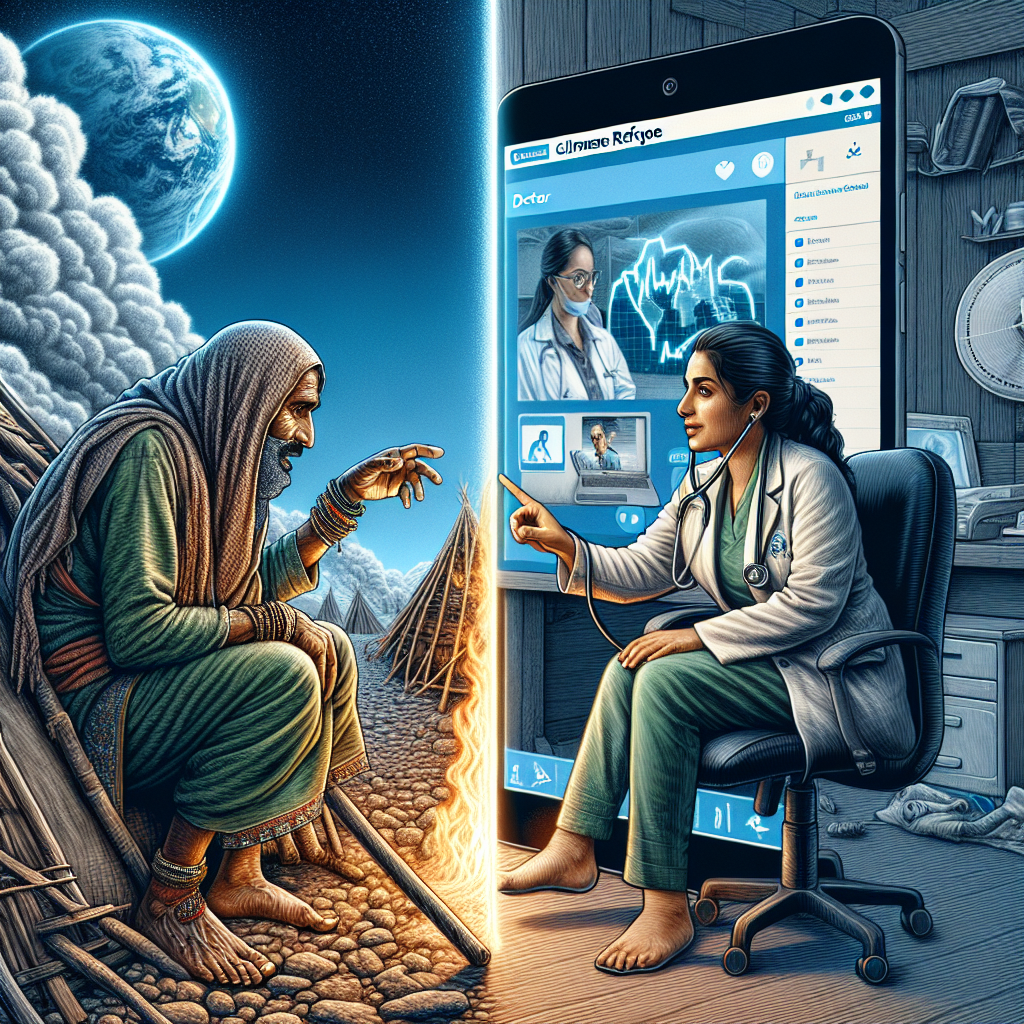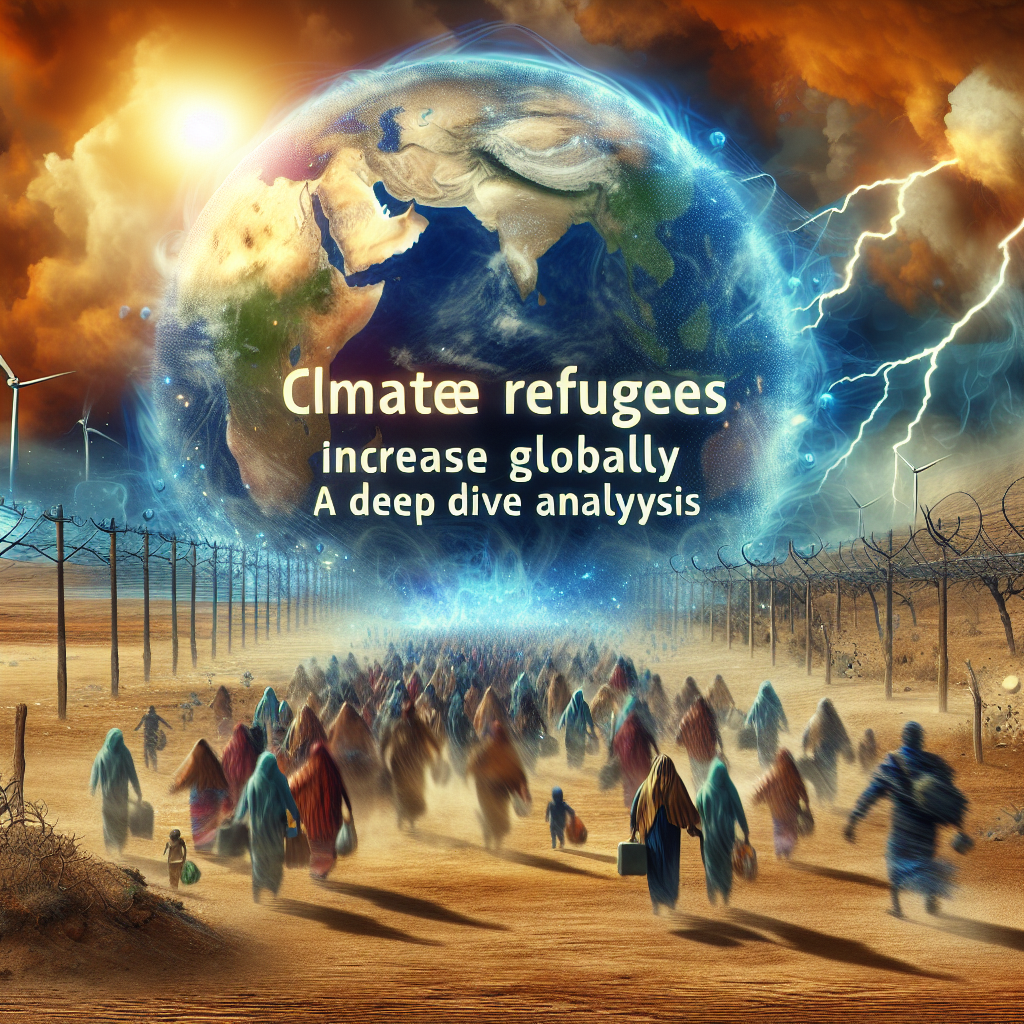When I was growing up in a small mid-western town, ‘climate refugee’ was an unheard term. Ironically, that term is no longer alien to me or to millions across the globe. The term loosely refers to people who have been forced to flee their homes due to drastic climate change impacts.
The profile for such individuals is as diverse as it can get – farmers unable to cultivate on parched lands, families from coastal towns whose houses are submerged underwater or communities in wildfire-prone areas living with constant uncertainty. This narrative isn’t just about migration; it’s about health crises ensued by displaced livelihoods.
Technology Overview
Medical practitioners and humanitarian organizations leverage state-of-the-art technologies like AI-driven predictive modelling, telemedicine facilities and portable clean water systems for assisting these refugees. These initiatives fuse healthcare prowess with tech innovation.

Current State of the Art
The current medical landscape has seen technological advancements providing remote diagnostic capabilities via mobile devices, enabling access to specialist care even in remote refugee camps and geo-tagging disease outbreaks using cloud-based AI tools for rapid response strategies.
Key Innovations
Through machine learning algorithms we now have prediction models identifying potential hotspots for diseases based on environmental conditions. Portable diagnosic labs designed for easy deployment at disaster-stricken locales are bringing lab facilities closer than ever before.
Market Adoption
‘Why I changed my mind about’, what started off as hobbyist bio-hacking experiments hosted in garages, has now transformed into a market-driven sustainable solution for refugees globally. Workable designs of portable labs are no longer confined to prototypes but have found viable backing.
Technical Challenges
The challenges posed by inconsistent energy sources, lack of infrastructure and dearth of trained professionals continue to loom large on the technological adoption front.
Industry Applications
From mobile health applications enabling teleconsultations to blockchain technology providing secure patient history access to medical responders – these innovations find broad application across public health management systems globally.
Future Development
The future heralds advancements like self-sufficient refugee camps running on renewable energy and AI-assisted healthcare systems that predict vulnerable populations’ needs.
Societal Impact
‘Contrast Opening’, Despite the magnitude of climate-induced migration being overwhelming, technology offers an optimistic counter-narrative. As more solutions emerge from cross-disciplinary collaboration between tech companies, humanitarian organizations and governments – we witness societal acceptance grow hand-in-hand with innovation.
We face not just an environmental crisis but also a human one; let’s start treating it so. Let’s offer our empathy, along with our innovation.A renowned public health researcher says:
Ethical Considerations
We must respect privacy rights when leveraging data-driven technologies for supporting these vulnerable populations. Striking this balance requires ongoing dialogues involving ethicists alongside technologists and healthcare practitioners.
‘Hope and Possibility’
In conclusion, despite the daunting scale of climate-induced displacement crises, there is tangible hope rooted in innovative technologies promising better preparedness and improved resilience among affected communities.

